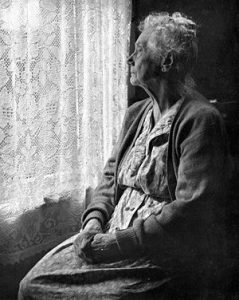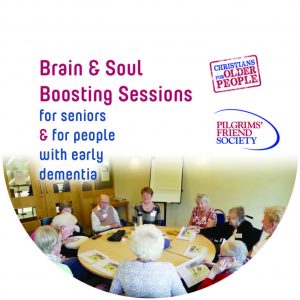 Feelings of loneliness affect your physical health. Sometimes fatally! Social psychologist John Cacioppo, (University of Chicago), a world leader in the biomedical effects of loneliness, presented some of his latest research in January this year at a scientific symposium in America.
Feelings of loneliness affect your physical health. Sometimes fatally! Social psychologist John Cacioppo, (University of Chicago), a world leader in the biomedical effects of loneliness, presented some of his latest research in January this year at a scientific symposium in America.
His findings confirm a growing body of science showing that loneliness is more damaging than smoking 15 cigarettes a day, or being obese, or not taking exercise. It can cause high blood pressure, and hardened arteries. It increases the risk of dementia by 64%. Lonely people suffer from higher rates of ‘all cause mortality’, meaning all kinds of death from a range of causes.
Even sleep is affected. It no longer ‘knits up the ravelled sleeve of care,’ as Shakespeare’s Macbeth put it. And it’s a downward spiral – feeling lonely produces more negative emotions so people withdraw even further.
Social engagement may be hard-wired, Professor Cacioppio said. He’s right, because the Scriptures show that God designed human beings for relationship with one another. From the beginning, it was ‘not good for man to be alone.’
So what’s the answer? Interestingly, research by the Church Urban Fund confirms that group activities are better than one to one contact in breaking down social isolation and combatting feelings of loneliness.
And groups that meet for a specific purpose, rather than just social contact are even more effective. ‘The important thing is that an individual feels a part of the group: the more an individual identifies with the group, the stronger their sense of belonging and membership, and the more likely they are to experience significant physical and mental benefits as a result of that membership.’ (See reference below.)
We think it’s one of the reasons our Brain & Soul Boosting for Seniors (BSBS) sessions are so successful. Everyone wants to ‘boost’ their mental abilities! And the sessions are designed to reinforce individuals’ sense of identity, produce a sense of wellbeing and provide gentle, spiritual support. Group leaders Sally and Jo at Stapleford Baptist Church said, ‘We found the predictable and structured nature of the sessions to be very important. It lowers participants’ anxiety levels, making them feel safe, and enables them to open up and participate at their own level. The sense of wellbeing and connection is always greater by the end of a session than at the beginning.’
 ‘I have run cognitive stimulation groups as part of my job in the past and was thrilled to see a ‘spiritual’ version of that concept,’ said another.
‘I have run cognitive stimulation groups as part of my job in the past and was thrilled to see a ‘spiritual’ version of that concept,’ said another.
Seniors are keen to stay mentally sharp, and are attracted to the BSBS groups. The Workbooks are clearly set out, with clear guidelines for group leaders – who don’t need special skills.
The picture on the left is on a DVD, showing a group in action.
BSBS is custom-made for faith groups who care about the wellbeing of older people. You can find out more on our website, www.pilgrimsfriend.org.uk
https://www.cuf.org.uk/Handlers/Download.ashx?IDMF=06a66cd5-15c0-4fe5-a837-f5f417a2d2b7















